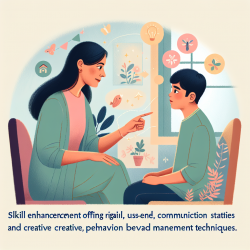Introduction
Sleep is a fundamental biological process that plays a critical role in brain development and function. Recent research has shed light on the intricate relationship between sleep, neural plasticity, and neurodevelopmental disorders. In particular, the study "Sleep, Plasticity and the Pathophysiology of Neurodevelopmental Disorders: The Potential Roles of Protein Synthesis and Other Cellular Processes" explores how disordered sleep can influence the progression of neurodevelopmental disorders, such as autism spectrum disorder (ASD), fragile X syndrome, and others.
The Importance of Sleep-Dependent Plasticity
Neural plasticity, the brain's ability to reorganize itself by forming new neural connections, is essential for learning and memory consolidation. Sleep is crucial for this process, as it facilitates the synthesis of proteins necessary for synaptic strengthening. This protein synthesis is particularly important during sleep, as it supports the consolidation of memories and the refinement of neural circuits.
In children, whose brains are rapidly developing, the role of sleep in supporting plasticity is even more pronounced. Disruptions in sleep can lead to impairments in cognitive functions, such as learning and memory, which are critical for academic and social success.
Sleep Disturbances in Neurodevelopmental Disorders
Many neurodevelopmental disorders are associated with sleep disturbances. For instance, individuals with ASD often experience fragmented sleep, reduced REM sleep, and increased sleep latency. These sleep issues can exacerbate the core symptoms of ASD, such as difficulties in social interactions and communication.
Similarly, fragile X syndrome, the most common inherited cause of intellectual disability, is characterized by increased sleep latency and reduced REM sleep. These disturbances can hinder the cognitive and behavioral development of affected individuals.
Mechanisms Linking Sleep and Neurodevelopmental Disorders
The research highlights several cellular mechanisms that may link sleep disturbances to neurodevelopmental disorders:
- Protein Synthesis: Sleep promotes protein synthesis, which is vital for synaptic plasticity. Disordered sleep can disrupt this process, leading to impaired memory consolidation and learning.
- Cellular Stress: Sleep deprivation can induce cellular stress responses, such as the unfolded protein response and oxidative stress, which may contribute to the pathophysiology of neurodevelopmental disorders.
- Myelination: Sleep supports the myelination of neural pathways, which is crucial for efficient neural communication. Disruptions in sleep can impair this process, potentially affecting cognitive and behavioral outcomes.
Implications for Practitioners
For practitioners working with children with neurodevelopmental disorders, understanding the role of sleep in brain development is essential. Implementing strategies to improve sleep quality can have a significant impact on the cognitive and behavioral outcomes of these children. This includes promoting good sleep hygiene, addressing sleep disorders, and considering the potential benefits of sleep interventions.
Furthermore, practitioners are encouraged to stay informed about ongoing research in this area, as it continues to evolve and provide new insights into the complex relationship between sleep and neurodevelopmental disorders.
To read the original research paper, please follow this link: Sleep, Plasticity and the Pathophysiology of Neurodevelopmental Disorders: The Potential Roles of Protein Synthesis and Other Cellular Processes.










